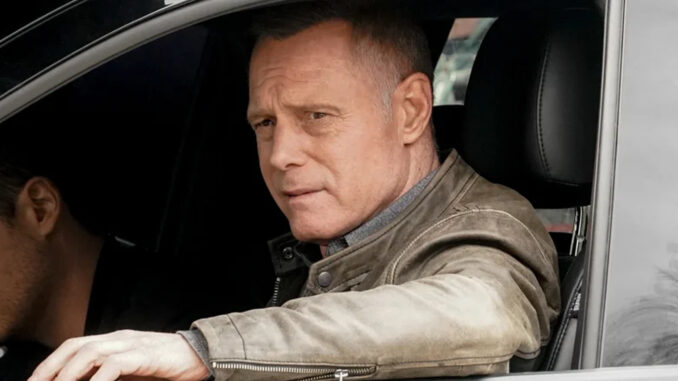
The Cracks in the Halo: Voight and the Erosion of Audience Affection
For years, Hank Voight, the complex and often morally ambiguous leader of Chicago PD's Intelligence Unit, has held a peculiar place in the hearts of the audience. Jason Beghe's portrayal imbued him with a gruff charisma, a dedication to protecting the innocent, and a willingness to cross lines that resonated with viewers craving a justice that the legal system often failed to deliver. We rooted for him, forgave his transgressions, and even justified his brutal tactics, seeing him as a necessary evil in a city riddled with corruption. But somewhere along the line, that affection began to erode. The halo surrounding Voight, once burnished by righteous anger and a protective spirit, has cracked, revealing a man whose methods are increasingly difficult to excuse and whose motivations are starting to feel less noble.
Initially, Voight's appeal lay in his pragmatism. He operated in shades of grey, understanding that textbook procedure wouldn't always catch the monsters lurking in Chicago's underbelly. He was the anti-hero who delivered results, bending the rules to ensure the guilty paid. His relationship with his team, particularly with those he saw as surrogate children, painted him as a flawed but ultimately caring father figure. He was fiercely loyal, willing to risk his career and even his freedom for his unit. This loyalty, combined with his raw, unfiltered emotion when facing loss or betrayal, made him relatable, even endearing.
However, the line between pragmatism and outright corruption began to blur. What started as bending the rules evolved into outright breaking them. Fabricating evidence, manipulating suspects, and even engaging in physical violence became increasingly commonplace. While initially presented as a last resort, these tactics gradually became Voight's default approach, raising serious questions about his integrity. The justification that he was “protecting the city” began to ring hollow, especially when the consequences of his actions started to impact innocent individuals.
The death of Alvin Olinsky, a close confidante and loyal follower, marked a turning point. Olinsky's sacrifice to protect Voight from a crime he committed should have been a wake-up call, a moment of profound self-reflection. Instead, Voight doubled down on his methods, seemingly convinced that his ends justified any means. This stubborn refusal to learn from the past, to acknowledge the damage he inflicts, alienated a significant portion of the audience.
Moreover, the narrative surrounding Voight began to shift. Earlier seasons presented him as a man wrestling with his inner demons, haunted by his past and driven by a genuine desire to protect the city. Later seasons, however, portray him as increasingly isolated and self-righteous. His brooding silence and cryptic pronouncements, once perceived as signs of a tormented soul, now feel more like an unwillingness to be held accountable. His reliance on his own instincts, dismissing dissenting opinions from his team, paints him as arrogant and detached.
The erosion of audience affection is further fueled by the changing landscape of television itself. In an era where nuanced portrayals of law enforcement are increasingly scrutinized, Voight's actions feel less like anti-heroism and more like unchecked abuse of power. The calls for police accountability and ethical conduct resonate deeply with viewers, making it harder to justify Voight's disregard for due process and his willingness to compromise the very system he is sworn to uphold.
Ultimately, the journey of Hank Voight from a beloved anti-hero to a controversial figure serves as a potent reminder of the importance of moral boundaries. While his initial appeal stemmed from his willingness to do what others wouldn't, his increasing reliance on questionable methods has alienated many viewers. The cracks in his halo, once barely visible, have widened into gaping fissures, forcing us to confront the uncomfortable truth that even the most well-intentioned individuals can be corrupted by power and the illusion of absolute righteousness. Whether Voight can ever redeem himself in the eyes of the audience remains to be seen, but one thing is certain: the days of unquestioning admiration are long gone, replaced by a critical eye and a growing sense of unease.
